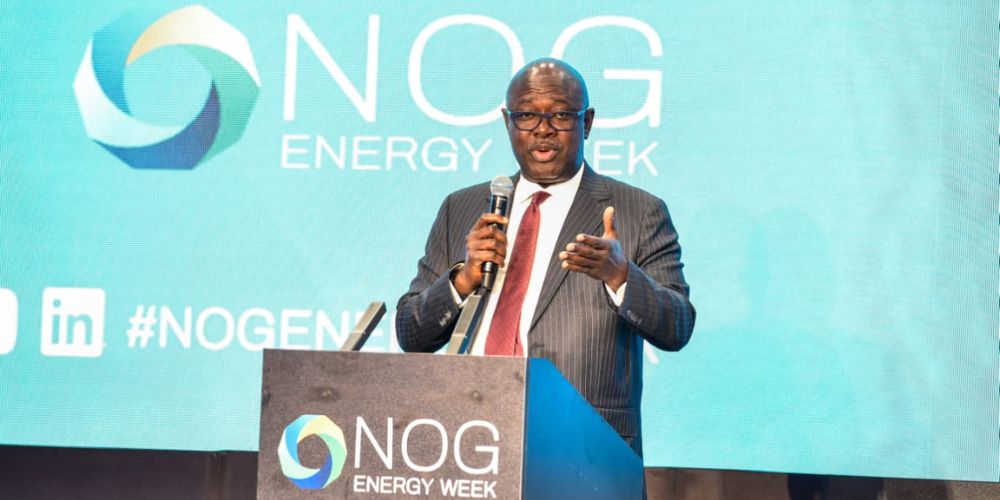Nigeria To Press OPEC For Quota Review As Output Nears 2 Million Barrels
…Lokpobiri Hails NUPRC’s Role in Restoring Investor Confidence, Driving Production Growth
Nigeria will make a strong case for a higher crude oil production quota at the next meeting of the Organisation of Petroleum Exporting Countries (OPEC) in November, as national output approaches two million barrels per day, the Minister of State for Petroleum Resources (Oil), Senator Heineken Lokpobiri, has said.
The Minister disclosed this in an interview assessing Nigeria’s upstream oil performance four years after the passage of the Petroleum Industry Act (PIA)Band the establishment of the Nigerian Upstream Petroleum Regulatory Commission (NUPRC).
Lokpobiri said that sustained recovery in crude output, improved regulatory stability, and a renewed wave of investment have positioned Nigeria to demand a review of its OPEC quota, which currently stands at 1.5 million barrels per day (excluding condensates).
“When I became minister, the OPEC quota for Nigeria was 1.5 million barrels per day because our actual production was lower than that,” he said. “Today, we are producing about 1.7 million barrels daily, including condensates, and we have the capacity to produce well above 2 million barrels per day. It is time to review the quota upward.”
He added that Nigeria’s case would be strengthened by verifiable data showing expanded capacity, as well as domestic crude supply obligations under the PIA that require increased volumes to feed local refineries.
Advertisement
Lokpobiri attributed Nigeria’s production rebound to improved pipeline integrity and enhanced security across the Niger Delta.
According to him, years of pipeline vandalism and theft had discouraged producers from operating at full capacity, but the tide has now turned.
“Before now, companies were scared to produce because crude pumped into pipelines hardly got to the terminal. Today, if you put in crude, you get 100 percent at the export point,” he noted.
He said new investments and maintenance efforts have also paid off, with the country’s rig count rising from about 14 rigs to nearly 50, and expected to surpass that number by the end of the year.
Lokpobiri highlighted the positive impact of recent divestments by oil majors such as Shell, TotalEnergies and ExxonMobil, describing them as a “blessing in disguise” that has opened space for capable Nigerian operators.
Advertisement
“Our indigenous producers are doing excellently. Renaissance has increased production by over 60,000 barrels a day since taking over Shell’s assets, while Seplat has added around 40,000 barrels to the volumes they acquired from ExxonMobil,” he said.
The Minister praised the NUPRC, led by Chief Executive Engr. Gbenga Komolafe, for anchoring the reforms that have restored confidence in the upstream petroleum sector and attracted new investment.
“The PIA brought stability to the regulatory framework, and NUPRC has been doing an excellent job,” Lokpobiri said. “It has become a reference point for many countries coming to learn how Nigeria regulates its upstream sector. With the leadership experience of Engr. Komolafe, the Commission is positioning Nigeria as the best in Africa and one of the best in the world.”
He noted that the establishment of the African Petroleum Regulatory Forum (AFRIPERF) under NUPRC’s coordination further underscores Nigeria’s regional leadership in oil and gas governance.
The forum, he said, aims to unify Africa’s voice in global energy policy and advocate equitable investment and energy access.
Lokpobiri also credited President Bola Tinubu’s executive orders for helping to cut production costs and make Nigeria’s oil sector more globally competitive.
Advertisement
“Our cost of production used to be higher than the global average, but we have taken bold steps to bring it down. The executive orders have been helpful in making our environment more investor-friendly,” he said.
He emphasised that Nigeria’s goal of achieving 2.06 million barrels per day by 2025 is achievable, given the pace of investment, infrastructure renewal, and regulatory support.
“When I took office, production was around one million barrels a day. Today, it’s 1.7 to 1.8 million barrels. That’s progress, but we’re not stopping there,” Lokpobiri affirmed.
On the continent’s broader energy outlook, the Minister stressed that oil and gas would continue to dominate the global energy mix for decades to come.
He said AFRIPERF’s formation was timely, giving Africa a united front in advocating fair treatment and balanced energy transition policies.
“Africa contributes less than three percent to global emissions. We cannot industrialise without reliable power, and we must use our oil and gas resources to build that foundation,” Lokpobiri asserted.
“Energy transition means different things to different regions — for us, it means first ensuring access to energy before talking about transition.”
With production steadily recovering, indigenous players expanding output, and the NUPRC earning continental recognition for regulatory excellence, Nigeria appears ready to reclaim its leadership role in Africa’s oil industry.
The country’s next test will come in November, when it presents its case before OPEC for a long-awaited quota review — a move that could solidify its return to the top tier of global oil producers.

